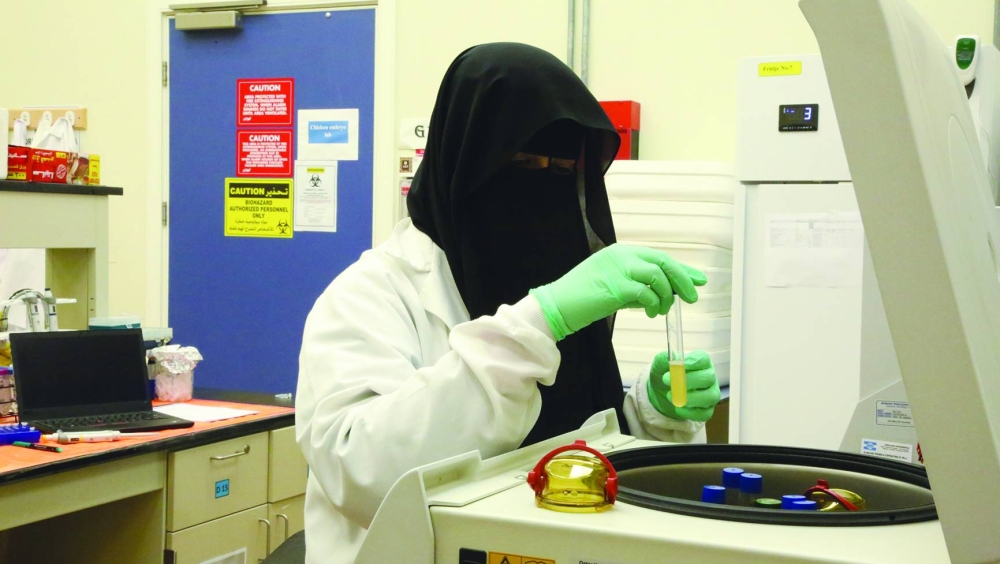Qatar University (QU) has achieved a significant milestone in diabetes treatment research.
In collaboration with colleagues, QU Biomedical Research Centre (BRC) research assistance professor Dr Layla al-Mansoori has unveiled a groundbreaking discovery with immense promise for individuals living with diabetes, particularly Type 2.
Their study focuses on the critical role of the protein GATA3 in the development of this chronic health condition.
In recent years, researchers worldwide have been working diligently to better comprehend the underlying causes of diabetes and explore novel treatment avenues.
The QU scientific team, led by Dr al-Mansoori, alongside BRC associate research professor Dr Mohamed Elrayess and Laboratory Animal Research Centre (LARC) director Dr Hamda Abdulla al-Naemi, embarked on an investigation into GATA3 inhibition and its effects on adipogenesis and insulin signalling.
While GATA3 inhibition has been previously utilised in diseases such as asthma and ulcerative colitis, this study marks the first time scientists at QU Health, the BRC, and LARC have explored its potential impact on diabetes.
The researchers employed a GATA3-specific DNAzyme encapsulated in liposome particles to induce GATA3 inhibition, thereby enhancing the effectiveness of the inhibitor used.
The study produced exciting findings, demonstrating that in-vitro GATA3 inhibition induced adipogenesis in primary human pre-adipocytes and enhanced insulin signalling in an insulin-resistant in vitro model.
Furthermore, in-vivo GATA3 inhibition not only promoted adipogenesis at the injection site but also led to a reduction in omental tissue size, resulting in more favourable fat redistribution.
These groundbreaking findings suggest that modulating GATA3 expression holds the potential for therapeutic benefits by correcting impaired adipogenesis, promoting healthier fat distribution, improving insulin sensitivity, and potentially reducing the risk of Type 2 diabetes.
Moreover, the observed reduction in omental tissue size indicates that inhibiting GATA3 could offer a non-surgical alternative for improved fat distribution, presenting exciting possibilities in the cosmetic industry.
The research conducted by Dr Elrayess and Dr al-Mansoori has been patented at the United States Patent and Trademark Office, with a publication date of December 2021.
Recognising the significance of this breakthrough, the office of Strategic Innovation, Entrepreneurship, and Economic Development at the QU, in collaboration with the inventors, is actively exploring potential investments from international pharmaceutical companies.
“While further research is necessary to fully comprehend the effects of GATA3 inhibition and determine its therapeutic efficacy for individuals with diabetes, our findings provide a solid foundation for further investigations into the potential benefits of inhibiting GATA3,” Dr al-Mansoori said. “This discovery represents a promising approach to diabetes treatment, with the potential to transform lives and improve patient outcomes.”

Dr Layla al-Mansoori
